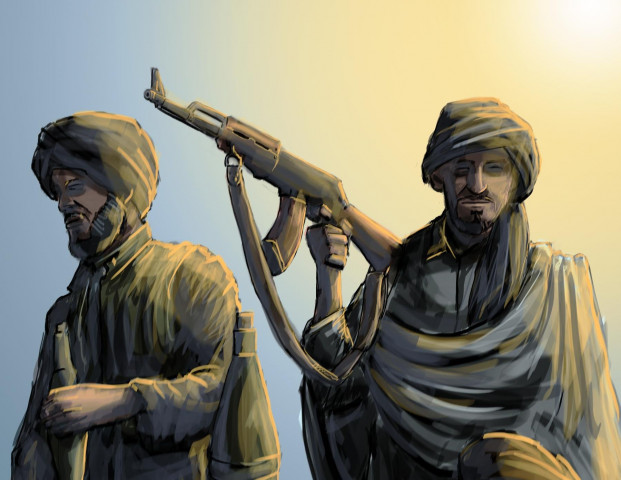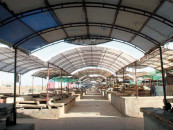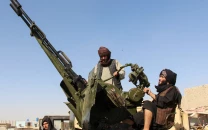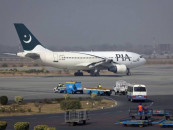A complex war
The political geography of Afghanistan is now once again turgid, stirred by the entry of the IS to the scene

Many of those now beneath the IS flag are simply rebadged, having fought under other flags in the past. STOCK IMAGE

It is against that background that the fight against the Taliban in Afghanistan, and now the Islamic State (IS) must be seen, as all of the combatants on the insurgent side will be aware both of their fight in the historical context, as well as its interaction with the politics of the day. The recent endorsement by Mullah Omar — the leader of the Afghan Taliban — of the Murree talks held between the group and Afghan government officials, should perhaps bee seen in this context. With the Afghan Taliban increasingly uncomfortable with IS presence in Afghanistan, its readiness to engage in talks with Kabul with some seriousness is understandable.
The political geography of Afghanistan is now once again turgid, stirred by the entry of the IS to the scene. Yet though new as the IS may seem, the on-the-ground human resources that make it up at both a command and unit level are not new, either in terms of battle readiness or the ability to interact with a wider world. Many of those now beneath the IS flag are simply rebadged, having fought under other flags in the past. Thus the deaths of Shahidullah Shahid and Hafiz Saeed Khan, both killed by US drones, may or may not impact on the command structure of the IS and much is going to depend on the strength locally of the group’s command structures and whether it had built in succession planning. Both these men were highly experienced, but their replacements will be based on tribal decisions rather than any decision taken by a remote group of IS campaign managers either inside or outside the country. As such, there may be a hiatus in the IS command chain, but it is safe to say that this might only be temporary.
Published in The Express Tribune, July 17th, 2015.
Like Opinion & Editorial on Facebook, follow @ETOpEd on Twitter to receive all updates on all our daily pieces.















COMMENTS
Comments are moderated and generally will be posted if they are on-topic and not abusive.
For more information, please see our Comments FAQ